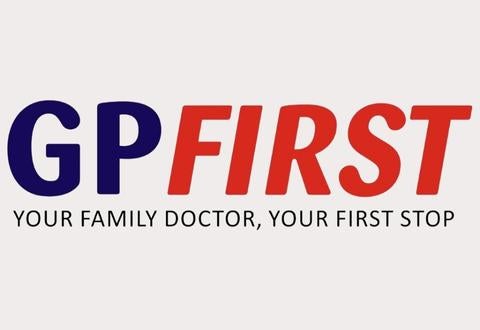What is - Laryngopharyngeal Reflux
What is laryngopharyngeal reflux?
Laryngopharyngeal reflux (LPR) occurs when stomach contents backflow or reflux via the oesophagus into the throat (pharynx) and voice box (larynx).
Unlike gastro-oesophageal reflux disease (GERD)opens in a new tab, it often does not cause heartburn, earning it the name ‘silent reflux’.
Common symptoms include persistent throat discomfort, globus sensation (feeling of a lump in the throat), hoarseness, chronic cough and excessive throat clearing.
LPR can result from lifestyle factors such as dietary habits and medical conditions such as hiatus hernia, obesity and obstructive sleep apnoea. Treatment typically involves lifestyle changes, including avoiding trigger foods, eating smaller meals and elevating the head during sleep. Anti-reflux medications may also be recommended if symptoms persist.
Symptoms of Laryngopharyngeal Reflux
What are the symptoms of laryngopharyngeal reflux?
Symptoms of laryngopharyngeal reflux include:
- Globus sensation (feeling of a lump in the throat)
- Persistent throat discomfort
- Throat itchiness
- Excessive phlegm in the throat
- Frequent or excessive throat clearing
- Hoarse voice
- Chronic cough
When should you see a doctor?
You should consult a doctor if your symptoms persist despite lifestyle adjustments, become more severe over time, or noticeably impact your quality of life. Furthermore, it is advisable to seek medical attention if you have trouble swallowing, bloodstained saliva or vomitus, neck swelling or masses, or unexpected weight loss.
What is the difference between LPR and GERD?
GERD is caused by the backflow of stomach contents, including acid and digestive enzymes, into the oesophagus through the lower oesophageal sphincter, which normally functions to prevent reflux. On the other hand, LPR is caused by the backflow of stomach contents higher up into the pharynx and larynx through both the upper and lower oesophageal sphincters.
While both conditions may co-exist, it is not uncommon that patients with LPR do not experience the typical symptoms of GERD such as heartburn (i.e., ‘silent reflux’). This may be because the oesophagus is physiologically better equipped to resist mucosal damage and irritation from stomach contents as compared to the larynx and pharynx.
Laryngopharyngeal Reflux - Causes and Risk Factors
What are the risk factors for laryngopharyngeal reflux?
Several factors increase the risk of developing laryngopharyngeal reflux. These include:
- Dietary factors: Such as consuming caffeinated drinks or a diet high in acidic, spicy or fatty foods, which can trigger reflux
- Being overweight or obese: Excess abdominal fat can increase pressure on the stomach
- Obstructive sleep apnoea: Negative chest and throat pressure during sleep draws in stomach contents
- Having a hiatal hernia: Where part of the stomach pushes into the chest cavity
- Oesophageal motility disorders and/or oesophageal sphincter dysfunction
- Certain medications: Such as those that relax the sphincteric muscles or slow stomach emptying
- Stress or psychiatric conditions such as anxiety disorder: Though not considered risk factors of LPR, these may exacerbate symptoms experienced by patients with LPR
Diagnosis of Laryngopharyngeal Reflux
How is laryngopharyngeal reflux diagnosed?
A diagnosis of LPR is usually achieved clinically with a combination of detailed history, physical examination and trial of lifestyle modifications and/or anti-reflux medications. Occasionally, some tests and procedures may be performed for further evaluation, which include:
- Fibreoptic nasoendoscopy: A thin scope with a camera attached at the end of it is passed through the nose down to the throat to visualise the throat (pharynx) and voice box (larynx). This can be done under topical anaesthesia in the ENT clinic, and it is usually done to look for signs suggestive of LPR, and also for other possible causes of a patient’s throat symptoms (e.g., tumours).
- Oesophagogastroduodenoscopy (OGD) or transnasal oesophagoscopy (TNE): These procedures involve the passage of a scope through either the mouth or the nose, into the oesophagus and the stomach. For TNE, the scope is passed through the nose in clinic under topical anaesthesia, without the need for sedation. For OGD, the scope is passed through the mouth, and it is usually done in the endoscopy or operating room under sedation.
These scopes allow for the visualisation of reflux changes and abnormal growths in the oesophagus. They can also detect hiatus hernia which is a risk factor for reflux. A sample (biopsy) may be taken, if necessary, to exclude cancer or infection. - 24-hour pH / impedance testing: Considered the “gold standard” diagnostic test for reflux, the test probes, which are inserted through the nose and into the pharynx and oesophagus, have sensors lined along its length to detect the frequency and extent of reflux.
- Barium swallow: An X-ray test in which the patient swallows a dye, and serial X-rays are taken to assess the dye flow from the pharynx to the oesophagus and the stomach. This allows detection of any large growths, oesophageal motility disorders, or oesophageal sphincteric dysfunction. It can also detect reflux of the dye into the oesophagus.

Treatment for Laryngopharyngeal Reflux
How is laryngopharyngeal reflux treated?
Treatment of LPR consists of lifestyle and dietary modifications, anti-reflux medications and, rarely, surgery.

Lifestyle modifications
- Eat smaller, more frequent meals. A large meal will expand your stomach and increase upward pressure against the oesophageal sphincter.
- Limit your intake of acid-stimulating foods and beverages. Refer to dietary modifications outlined on the following page.
- Do not lie down for three hours after you eat. Lying flat makes it easier for the stomach contents to enter the oesophagus. When sleeping, it sometimes helps to have the head higher than the stomach. This can be achieved by raising the head of the bed or using a mattress wedge.
- Maintain a reasonable weight. Being overweight increases the pressure in the abdomen which can push the stomach contents against the LES.
- Do not smoke. Nicotine in cigarettes relaxes the oesophageal sphincter. Smoking also stimulates production of stomach acid.
- Do not wear tight clothing or belt around the waist. This can squeeze the stomach, forcing its contents into the oesophagus.
Dietary modifications
Avoid or reduce intake of spicy and ‘heaty’ foods such as chilli, peanuts and chocolate. Fried foods, oily foods and sugary foods like ice-cream should also be avoided. Drinks such as orange and grapefruit juice, fizzy drinks, milkshake, coffee, tea and alcohol can also worsen reflux and should be avoided.
Medications
The medication of choice for laryngopharyngeal reflux is alginate suspension (such as Gaviscon® / Gaviscon Advance® suspension). A derivative of seaweed, alginate forms a buoyant physical barrier in the stomach that physically inhibits the reflux of stomach contents (including acid and digestive enzymes) into the oesophagus, pharynx and larynx.
Medications to reduce acid production can also be given, especially if one has concomitant symptoms of GERD. They include proton pump inhibitors, such as omeprazole, and histamine-2 (H2) receptor blockers, like ranitidine. However, these anti-acid medications only address acid reflux, and they do not target the non-acid reflux component (such as digestive enzymes and bile) that also contributes to LPR symptoms.
Surgery
Surgery is rarely indicated in LPR. It may be indicated if there is concomitant severe GERD that does not respond to maximal medical therapy and lifestyle/ dietary modification. Surgeries such as Nissen Fundoplication are performed to tighten the junction between the stomach and the oesophagus, thereby reducing the occurrence of reflux
FAQs on Laryngopharyngeal Reflux
Symptoms of laryngopharyngeal reflux may improve with lifestyle changes such as modifying your diet, avoiding trigger foods and maintaining a healthy weight. However, persistent or severe cases often require further evaluation to rule out other sinister causes, and may require medical treatment to manage the symptoms.
References
Gerd and LPR. ENT Health. (2024, January 24). https://www.enthealth.org/conditions/gerd-and-lpr/
Laryngopharyngeal reflux. Laryngopharyngeal Reflux | University of Michigan Health. (n.d.). https://www.uofmhealth.org/conditions-treatments/ear-nose-throat/laryngopharyngeal-reflux
Laryngopharyngeal reflux. UCLA Health. (n.d.). https://www.uclahealth.org/medical-services/gastro/esophageal-health/diseases-we-treat/laryngopharyngeal-reflux
Pennmedicine.org. (n.d.). https://www.pennmedicine.org/for-patients-and-visitors/patient-information/conditions-treated-a-to-z/laryngopharyngeal-reflux
Silent reflux: Condition: UT southwestern medical center. Condition | UT Southwestern Medical Center. (n.d.). https://utswmed.org/conditions-treatments/silent-reflux/
Contributed by
The information provided is not intended as medical advice. Terms of use. Information provided by SingHealth.
Condition Treated At
Department
Otorhinolaryngology - Head &Neck Surgery



















